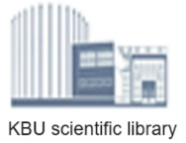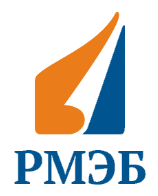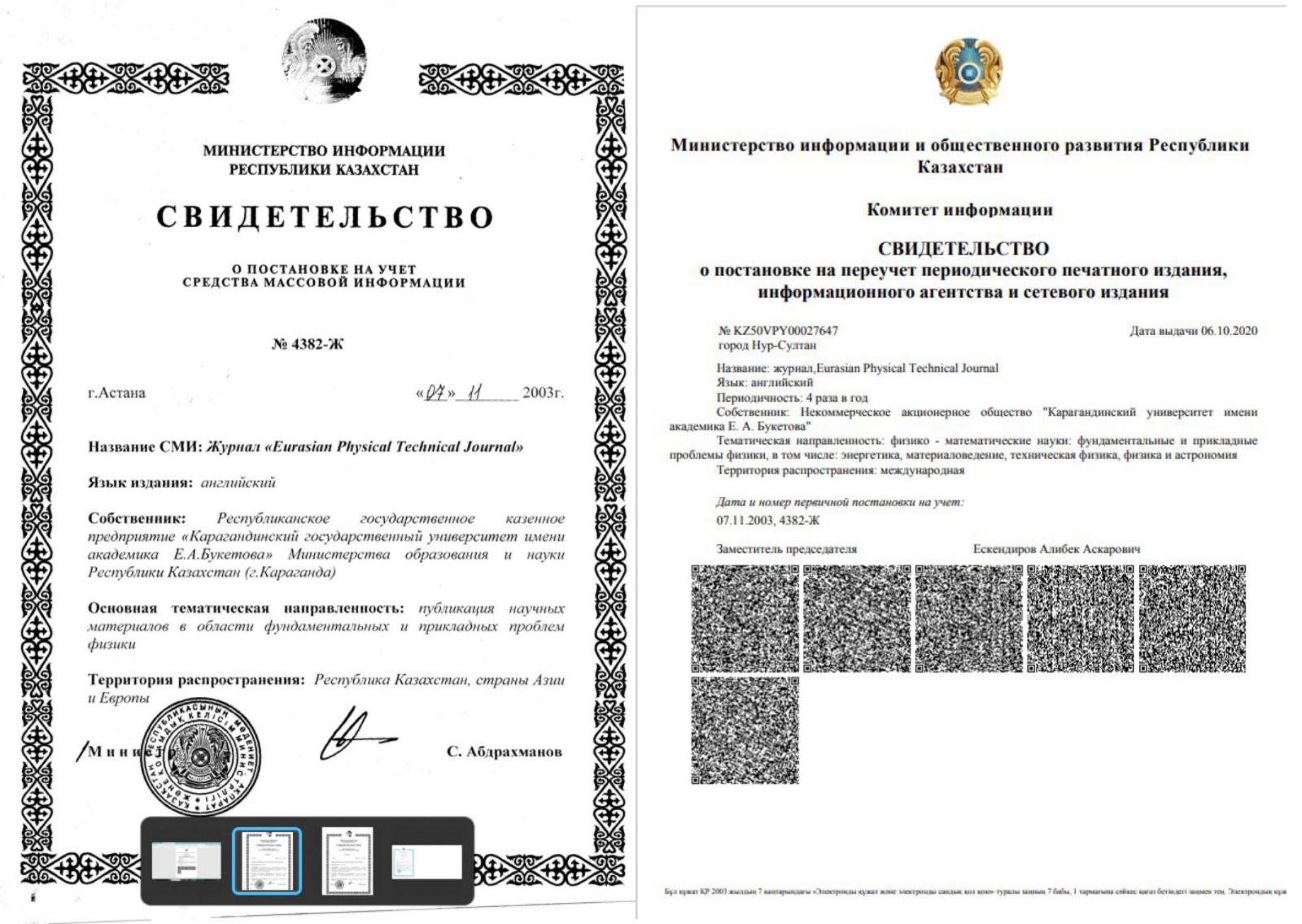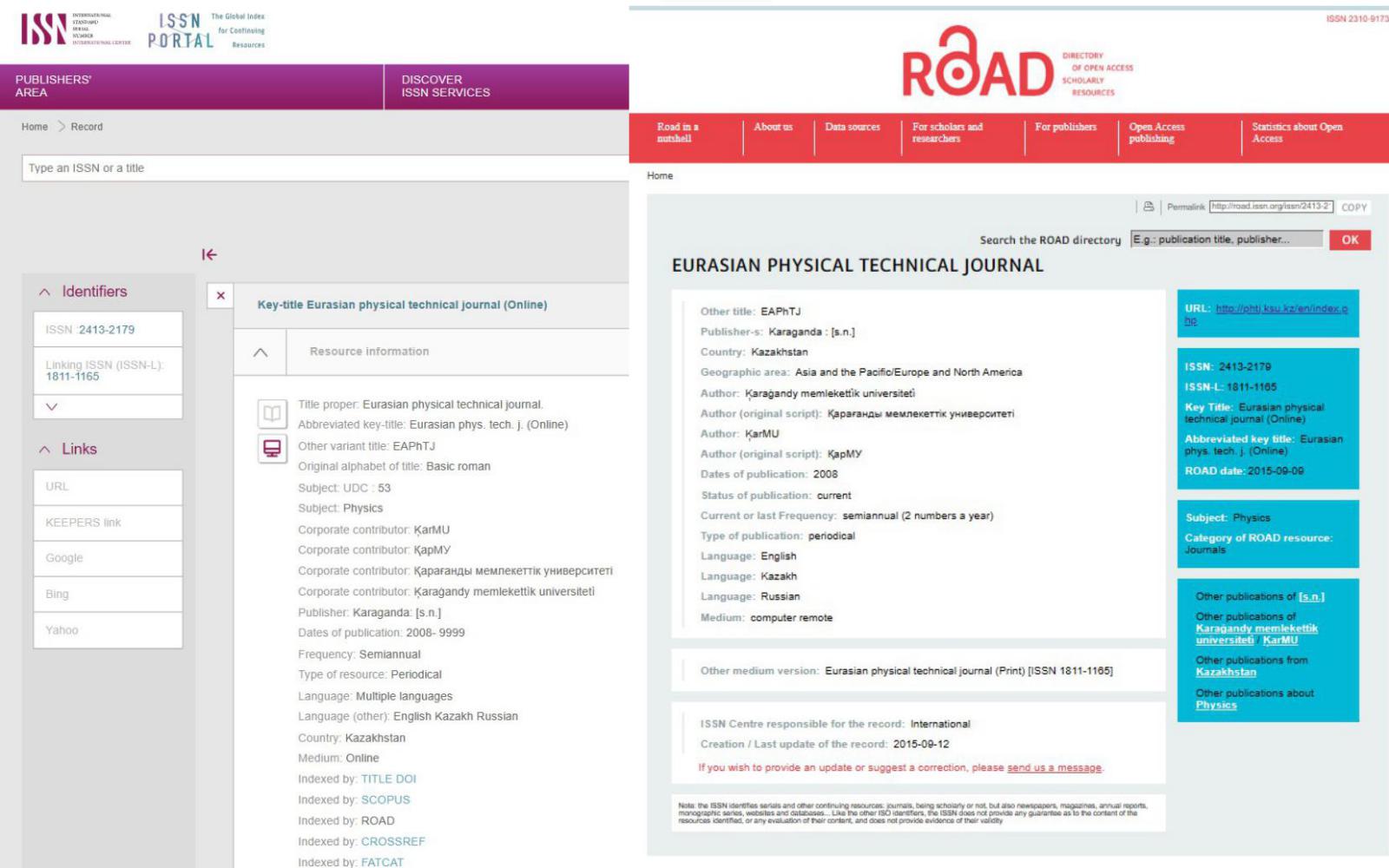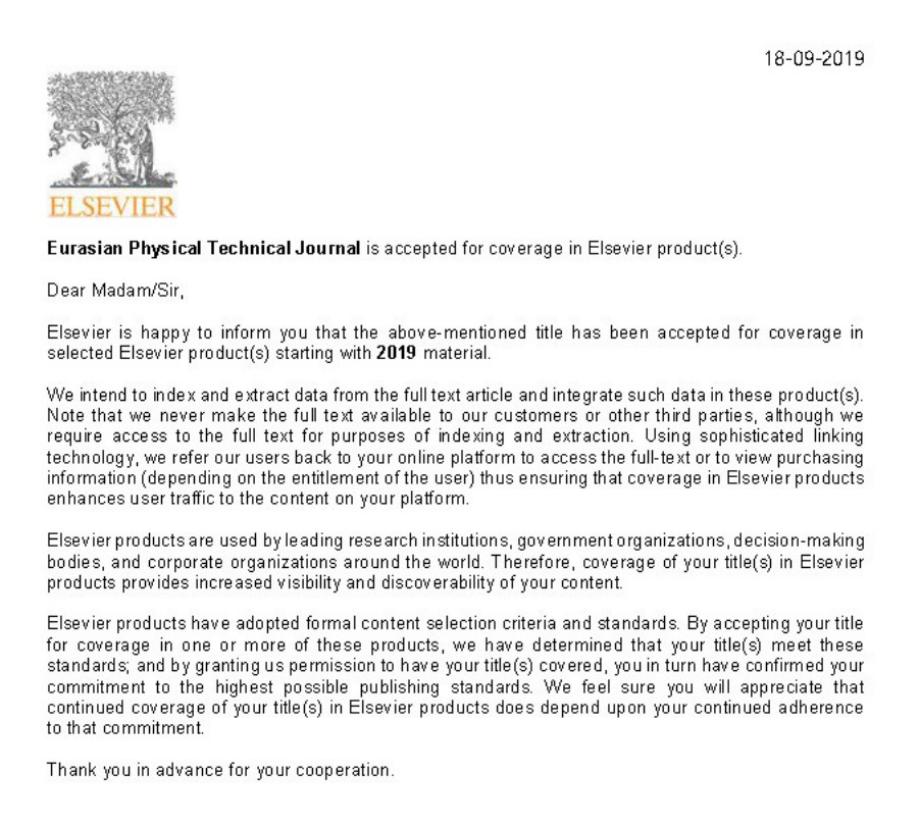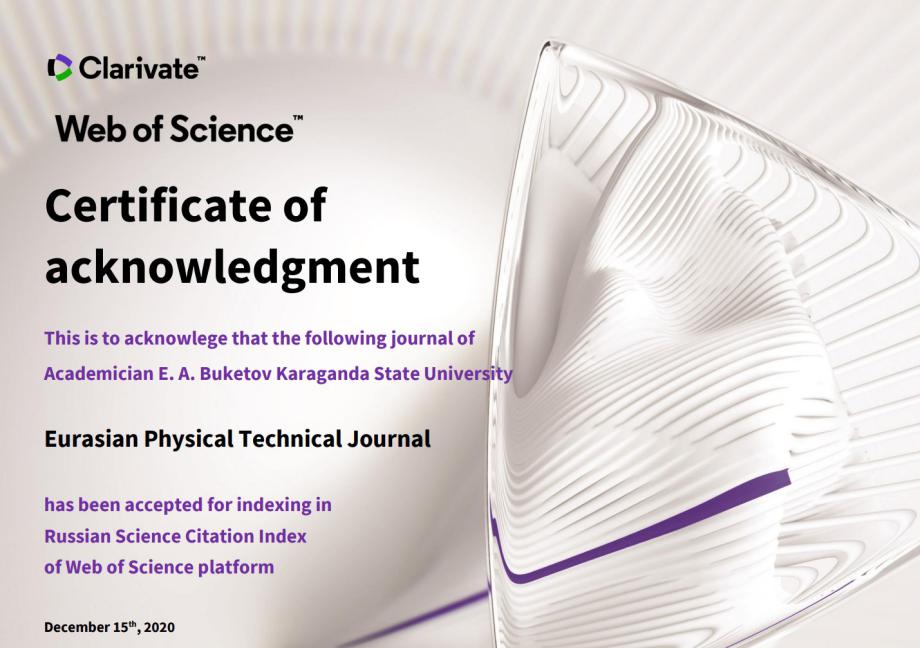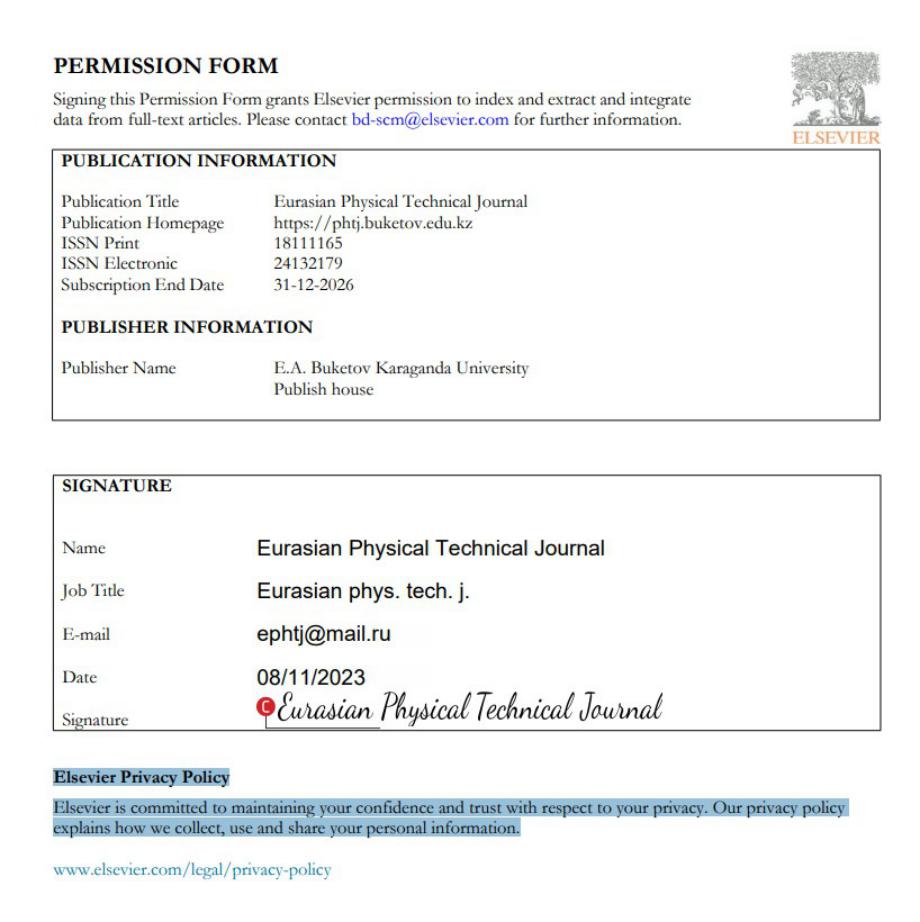Обоснование выбора материалов для дорожной разметки с целью разработки технологии их получения
DOI:
https://doi.org/10.31489/2025N1/83-92Ключевые слова:
покрытие для дорожных разметок, серия лабораторных опытов, стойкостьАннотация
Статья посвящена исследованию покрытий для дорожных разметок. Поскольку покрытия для дорожных разметок обладают высокой атмосферостойкостью, стойкостью к перепадам температур, влагостойкостью, а также хорошими антикоррозионными свойствами, то их можно использовать для защиты открытых стальных конструкций, но основной их целью является использование для нанесения дорожных разметок. При выборе вида материалов для разметки важно учитывать их технические характеристики. Очень важно, чтобы разметка была хорошо видна в любое время суток. Днём на видимость влияют размеры и яркость разметки. В данной работе описана серия лабораторных опытов с образцами, покрытыми красками и выявлены их защитные свойства при контакте с водой и кислотой. Работа в данном направлении продолжается. Так, в настоящее время авторы проводят эксперименты по созданию полимерного покрытия для неметаллических изделий (бетоны и т.д.).
Библиографические ссылки
Volokitina I.E., Volokitin A.V., Latypova M.A., Chigirinsky V.V., KolesnikovA.S. (2023) Effect of Controlled Rolling on the Structural and Phase Transformations. Progress in Physics of Metals, 24 (1), 132–156. https://doi.org/10.15407/ufm.24.01.132
Ulyeva G.A., Akhmetova G.E., Tuyskhan K. (2021) On the issue of alloying ang modification of alloys: using the waste products for creation of novel materials. Progress in Physics of Metals, 22, 2, 271-289. https://doi.org/10.15407/ufm.22.02.271
Avelar R.E., Carlson P.J. (2014) Link between pavement marking retro reflectivity and night crashes on Michigan two-lane high ways.Transportation Research Record: Journal of the Transportation Research Board, 2404, 59-67. https://doi.org/10.3141/2404-07
Carlson P.J., Park E., Kang D.H. (2013) Investigation of longitudinal pavement marking retro reflectivity and safety. Transportation Research Record: Journal of the Transportation Research Board, 2337, 59-66. https://doi.org/10.3141/2337-08
Kostina M.A., Soldatov А.I., Soldatov A.A., Abouellail A.A. (2024) Simulation of multipoint contact under thermoelectrictesting.Eurasian Physical Technical Journal, 21, 1(47). https://doi.org/10.31489/2024No1/93-103
Mirabedini S.M., Zareanshahraki F., Mannari V. (2019) Enhancing thermoplastic roadmarking paints performance using sustainable rosin ester. Progress in Organic Coatings, 139. https://doi.org/10.1016/j.porgcoat.2019.105454
Sersembekov B.K., Kadyrov A.S., Kunayev V.A., Issabayev M.S., Kukesheva A.B. (2024) Experimental comparison of methods for cleaning gas exhaust by exposure using ultrasoung and laser radiation. Material and mechanical engineering technology, 3, 44-53. https://doi.org/10.52209/2706-977X_2024_3_44
Georgiadi I., Kadyrov A., Kunayev V. (2023) Development of the universal working equipment of the exavator for preparation of materials based on waste during the road building.Communications. Scientific Letters of the University of Žilina, 25(2), B62-B76. https://doi.org/10.26552/com.C.2023.022
Sapargaliyeva B., Agabekova A., Syrlybekkyzy S., Kolesnikov A., Yerzhanov A., Kozlov P. (2023) Study of changes in microstructure and metal interface Cu/Al during bimetallic construction wire straining. Case Studies in Construction Materials. 18, e02162. https://doi.org/10.1016/j.cscm.2023.e02162
Kadyrov A., Kunayev V., Georgiadi I., Khaibullin R. (2019) Advanced methods for solving the problems of road construction in central Kaxakhstan.Techniki Vjesnik, 26(4), 1159-1163. https://doi.org/10.17559/TV-20170225144013
Volokitina I., Bychkov A., Volokitin A., Kolesnikov A. (2023) Natural Aging of Aluminum Alloy 2024 After Severe Plastic Deformation, Metallography Microstructure, and Analysis, 12(3), 564-566. https://doi.org/10.1007/s13632-023-00966-y
Volokitina I.E. (2021) Effect of Preliminary Heat Treatment on Deformation of Brass by the Method of ECAP. Metal Science and Heat Treatment, 63, 163-167. https://doi.org/10.1007/s11041-021-00664-y
Ulyeva G.A. (2024) Requirements on carbon-based reducing agents for electrothermal processes. Coke and chemistry, 67, 10, 596-606. https://doi.org/10.3103/S1068364X24600982
Tomasz E. Burghardt, PashkevichA. (2020) Materials selection for structured horizontal road marking: financial and environmental case studies.Journal European Transport Research Review, 11. https://doi.org/10.1186/s12544-020-0397-x
Greenhalgh J., Mirmehdi M. (2015) Detection and Recognition of Painted Road Surface Markings.In Proceedingsof the 4th International Conference on Pattern Recognition Applications and Methods, 1-9.10.5220/0005273501300138
Albert M., Schilling K. (2015) The line coating robot – An automated mobile system for high precision powder coating, 2nd IFAC Conference on Embedded Systems. Computer Intelligence and Telematics, 28, 10, 58-62. https://doi.org/10.1016/j.ifacol.2015.08.108
Babić D., Burghardt T., Babić D. (2015) Application and characteristics of waterborne road marking paint. InternationalJournal for Traffic and Transport Engineering, 5, 150-169. https://doi.org/10.7708/ijtte.2015.5(2).06
Burghardt T., Pashkevich A., Mosböck H. (2019) Yellow pedestrian crossings: From innovative technology for glass beads to a new retroreflectivity regulation. Case Studies on Transport Policy, 7(4), 862-870. https://doi.org/10.1016/j.cstp.2019.07.007
Burghardt T., Pashkevich A., Fiolić M., Żakowska L. (2019) Horizontal road markings with high Retroreflectivity: Durability, environmental, and financial considerations. Advances in Transportation Studies, 47, 49-60. https://doi.org/10.13140/RG.2.2.35798.14405
Burghardt T.E., Pashkevich A., Żakowska L. (2016) Influence of volatile organic compounds emissions from road marking paint song round-level ozone formation. Case study of Kraków, Poland. Transportation Research Procedia, 14, 711-723. https://doi.org/10.1016/j.trpro.2016.05.338
Albalate D., Fernández L., Yarygina A. (2013) The road against fatalities: Infrastructure spending vs. regulation. Accident Analysis and Prevention, 59, 227-239. https://doi.org/10.1016/j.aap.2013.06.008
Cruz M., Klein A., Steiner V. (2016) Sustainability assessment of road marking systems. Transportation Research Procedia, 14, 869-875. https://doi.org/10.1016/j.trpro.2016.05.035
Burghardt T.E., Pashkevich A., Zakowska L. (2016) Influence of Volatile Organic Compounds Emissions from Road Marking Paints on Ground-level Ozone Formation. Transportation Research Procedia, 14, 714-723. https://doi.org/10.1016/j.trpro.2016.05.338
Asainova D.A., Merkulov V.V., Akhmetova G.E., Ulyeva G.A. (2021) Secondary Processing of Metallurgical Production Waste to Obtain Refractory Materials. Inorganic Materials: Applied Research, 12, 1066-1069. https://doi.org/10.1134/S2075113321040031
Yari H., Mohseni M., Messori M. (2015) Toughened acrylic/melamine thermosetting clear coats using POSS molecules: Mechanical and morphological studies. Polymer, 63, 19-29. https://doi.org/10.1016/j.polymer.2015.02.040
Li H., Ma F., Sun S.-Q. (2015) Tri-level infrared spectroscopic identification of hot melting reflective road marking paint. Spectroscopy and Spectral Analysis, 35, 12, 3339-3343. https://doi.org/10.3964
Rastiveis H., Shams A., Sarasua W.A., Li J. (2020) Automated extraction of lane markings from mobile LiDAR point clouds based on fuzzy inference. Journal of Photogrammetry and Remote Sensing, 160, 149-166. https://doi.org/10.1016/j.isprsjprs.2019.12.009
Diamandouros K., Gatscha M. (2016) Rain vision: The impact of road markings on driver behaviour-wet night visibility. Transportation Research Procedia, 14, 4344-4353. https://doi.org/10.1016/j.trpro.2016.05.356
Calvi A. (2015) A study on driving performance along horizontal curves of rural roads. Journal of Transportation Safety and Security, 7(3), 243-267. https://doi.org/10.1080/19439962.2014.952468
Burghardt T.Е., Ščukanec A., Babić D. (2017) Durability of Waterborne Road Marking Systems with Various Glass Beads, Proceedings of International Conference on Traffic Development. Logistics and Sustainable Transport, 51-58. Available at: https://www.esearchgate.net/publication/326587824_ Durability_of_waterborne_road_marking_systems_with_ vario
Hadizadeh E., Pazokifard S., Mirabedini S.M., Ashrafian H. (2020) Optimizing practical properties of MMA-based cold plastic road marking paints using mixture experimental design. Progress in Organic Coatings, 147. https://doi.org/10.1016/j.porgcoat.2020.105784
Andrés Coves-Campos, Luis Bañón , José Andrés Coves-García, Salvador Ivorra. (2018) In-Situ Study of Road Marking Durability Using Glass Microbeads and Antiskid Aggregates as Drop-On Materials.Reseach Gate, https://doi.org/10.20944/preprints201809.0401.v2
Volokitina, I.E., Volokitin, A.V. (2023) Changes in Microstructure and Mechanical Properties of Steel-Copper Wire During Deformation. Metallurgist. 67(1-2), 232–239. https://doi.org/10.1007/s11015-023-01510-7
Rehna P.C., Harikrishna M., Anjaneyu M.V. (2020) Evaluation of centre line marking on driver behaviour. Lecture Notes in Civil Engineering. 45, 607-619. https://doi.org/10.1007/978-981-32-9042-6_48
Merkulov V., Ulyeva G., Akhmetova G., Volokitin A. (2024) Synthesis of copolymers for protective coatings. Journal of Chemical Technology and Metallurgy. 59(3), 639-646. https://doi.org/10.59957/jctm.v59.i3.2024.18
GOST 5272-68 "Corrosion of metals. Terms" - M.: IPK Publishing House of Standards, 1999. [in Russian] Available to: https://echemistry.ru/assets/files/gost/5272-68.pdf



